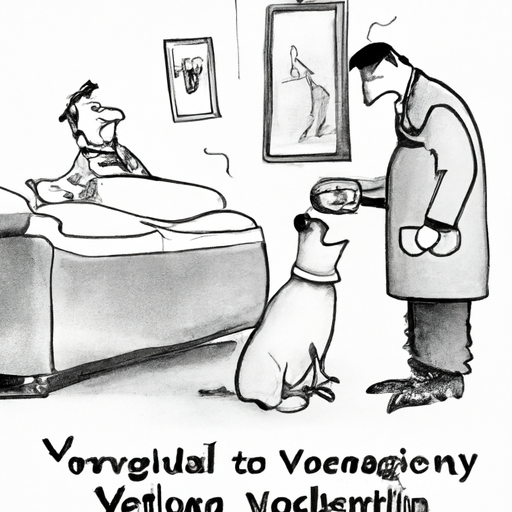“`markdown
How To Treat Gas In Dogs
As a caregiver, you know that your dog’s health and comfort are of the utmost importance. So, when your furry friend develops gas, it’s not just unpleasant for the nose, but it can also be a sign of discomfort for your dog. This guide will help you understand why your dog might be experiencing gas and what you can do to help them.
1. Understanding What Causes Gas in Dogs
Gas in dogs is caused by the same thing that leads to human gas: the fermentation of food in the intestines. Certain foods can exacerbate this process, and some breeds are more prone to gas than others.
- Foods: Certain foods are known to cause gas in dogs. These include beans, peas, lentils, dairy products, and high-fat or spicy foods.
- Breeds: Some breeds are simply more prone to gas. These include Boxers, Bulldogs, and Pugs.
2. Symptoms of Gas in Dogs
It’s important to be aware of the signs of gas in dogs so you can take appropriate action. Here are a few symptoms to watch out for:
- Excessive flatulence: This is the most obvious sign. If your dog is passing gas more than usual, it may be a sign of a problem.
- Bloating: If your dog’s abdomen seems swollen or hard, it could be a sign of excessive gas.
- Discomfort: If your dog seems uncomfortable or is behaving unusually, it could be due to gas.
3. Treating Gas in Your Dog
Fortunately, there are a few things you can do to help relieve your dog’s gas.
- Change their diet: Consider switching to a diet that is easier for your dog to digest.
- Slow down their eating: If your dog eats too fast, they may swallow air, which can lead to gas.
- Regular exercise: Regular exercise can help stimulate the digestive system and reduce gas.
4. When to See a Vet
While gas is typically harmless, it can sometimes be a sign of a more serious health issue. If your dog is showing signs of discomfort, or if the gas is accompanied by other symptoms such as vomiting or diarrhea, it’s time to see a vet.
5. Preventing Gas in Dogs
The best way to prevent gas in dogs is through a combination of a healthy diet and regular exercise. Avoid feeding your dog foods known to cause gas, and make sure they get plenty of physical activity.
| Do | Don’t |
|---|---|
| Feed a balanced diet | Feed foods known to cause gas |
| Encourage regular exercise | Ignore symptoms of discomfort |
| Slow down their eating | Allow rapid eating |
Frequently Asked Questions
Q: What foods cause gas in dogs?
A: Beans, peas, lentils, dairy products, and high-fat or spicy foods can cause gas in dogs.
Q: Are some breeds more prone to gas?
A: Yes, some breeds like Boxers, Bulldogs, and Pugs are more prone to gas.
Q: When should I see a vet?
A: If your dog is showing signs of discomfort, or if the gas is accompanied by other symptoms such as vomiting or diarrhea, see a vet.
“`



